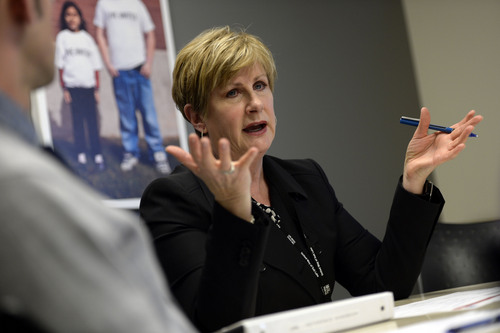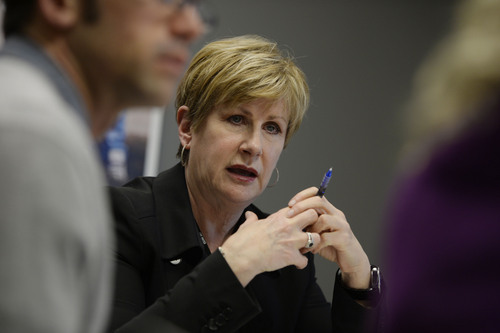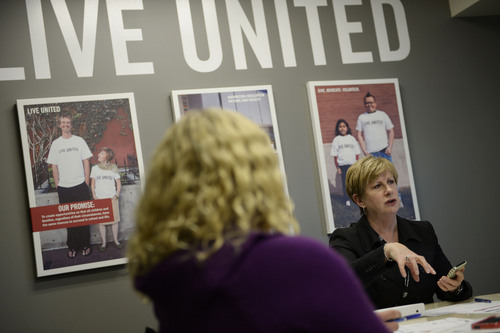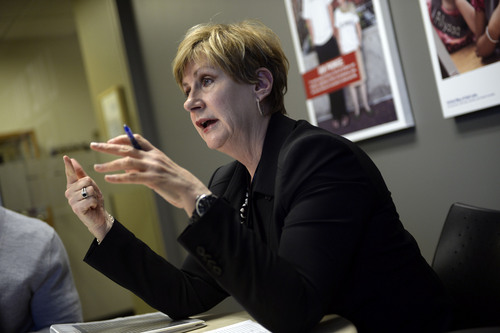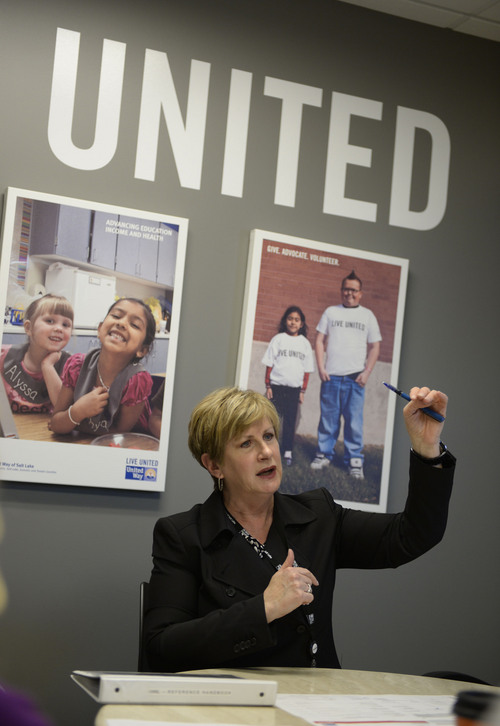This is an archived article that was published on sltrib.com in 2014, and information in the article may be outdated. It is provided only for personal research purposes and may not be reprinted.
Anne Burkholder believes in fighting racism, empowering women and working for justice and peace. That's why she has devoted her entire professional career to nonprofit companies and currently is the chief executive officer for the YWCA Utah.
"It has been important for me to be able to align my values with my professional life," she said. "I've found an ability to do that in the nonprofit sector."
Around the country and in Utah, there are a lot of women like Burkholder who are drawn to community service for altruistic reasons and who eventually landed leadership positions at nonprofit organizations.
According to a new study at Utah Valley University in Orem, there are more female executives heading nonprofits than males both nationally and in the state. In Utah, 57.8 percent of 663 nonprofit organizations surveyed for the study are led by women, just slightly below the national figure of 62 percent. That's much higher than in other sectors such as politics, according to Susan R. Madsen, professor of leadership and ethics at UVU's Woodbury School of Business, who conducted the study.
Nearly half — 45.8 percent — of those who serve on boards for nonprofit organizations in the state are women, higher than the national figure of 45 percent, according to the study.
"Women are more often drawn to opportunities where they can envision themselves or their organizations helping people in need, giving a voice to those who are not being heard, serving the community more broadly, and overall making a difference in people's lives," the study states.
Madsen also believes that women may see more of a need or "calling" to help others than men do, and they get an initial taste of it when they first volunteer in their communities.
"Often women see their leadership talents — they get to practice and really see that they have leadership skills. Once you get that in your system, you think, 'I can do more and step forward, and I have a voice,'" Madsen said. "When women volunteer then they're introduced to these issues. It's in their head, heart and hands."
Deborah Bayle, president and CEO of the United Way of Salt Lake, first began her career in the nonprofit sector when she took a job with the local chamber of commerce at 24. Back then, she said it wasn't really a "calling" that brought her there.
"I just moved back to Salt Lake and was looking for a job. But once I was there I was hooked, and I became totally passionate about the ability for the chamber and for me to benefit the community. That's why I stayed with it and stayed in the nonprofit sector," she said. "It's been very rewarding for me. At the end of every day, I go home from work, and I feel like I've made a difference in peoples lives in our community."
Generally, the results of the study weren't surprising, Madsen said. The number of female chief executives in nonprofit companies is well represented in all areas of focus — from arts and the humanities to human services — and in all regions of the state, according to the study. Also, as the company's size grows (based on its annual budget), the likelihood a woman is in charge drops. More than 59 percent of women were CEOs of companies with budgets of $49,000 or less while 37.8 percent of CEOs were women at companies with budgets of $5 million or more.
The data for nonprofit companies is much more encouraging for women than, say, politics. A previous study by Madsen showed that females were grossly under-represented in the political arena. There are no female members of Congress in Utah's delegation, and there are no women serving statewide executive offices. In the State Legislature, only 17 percent of lawmakers are female.
Madsen's study is the newest addition to a four-part project that looks at women in leadership roles, the first being politics. In the next two months, she will release the results of studies that look at the education and for-profit sectors.
"One of the reasons we do these briefs [studies] is to have attention brought to these issues," Madsen said. "We have so many amazing women in this state, but sometimes they don't have that encouragement. If you don't see yourself as leader from the start, then it's difficult to want to step up."
Twitter: @ohmytech
Google+: +Vincent Horiuchi


